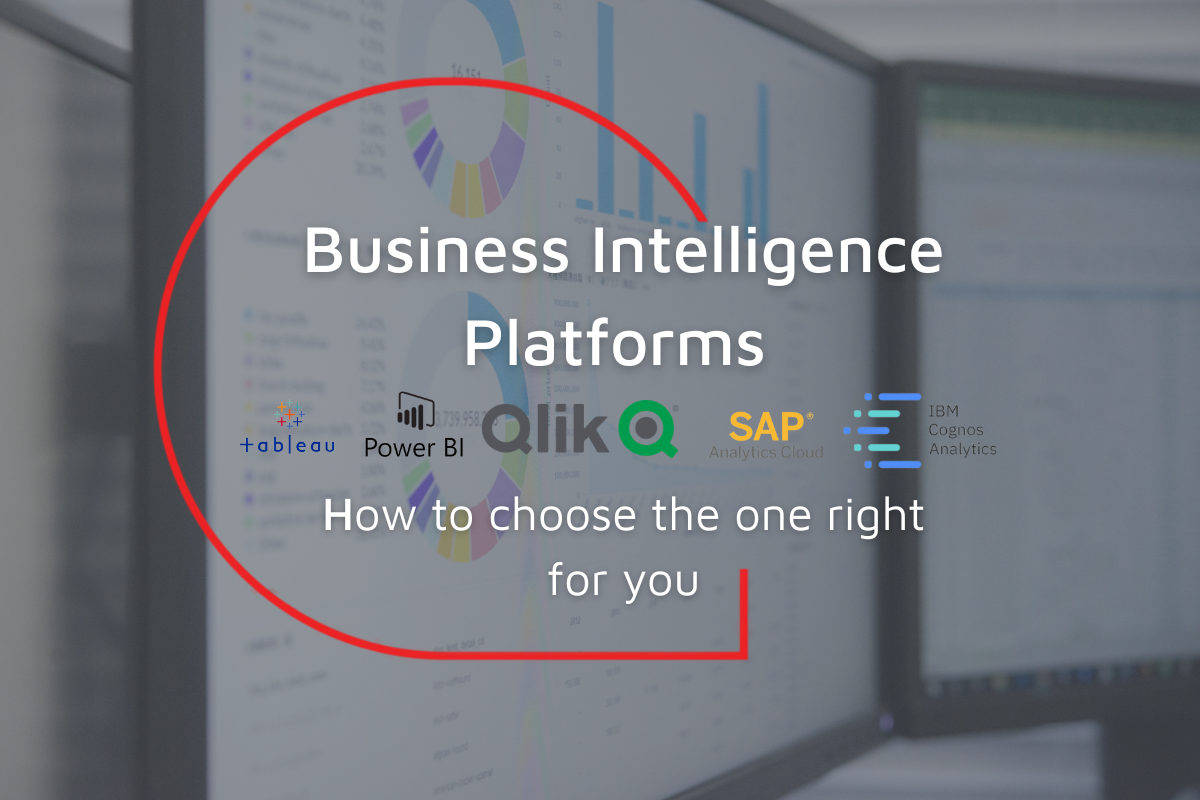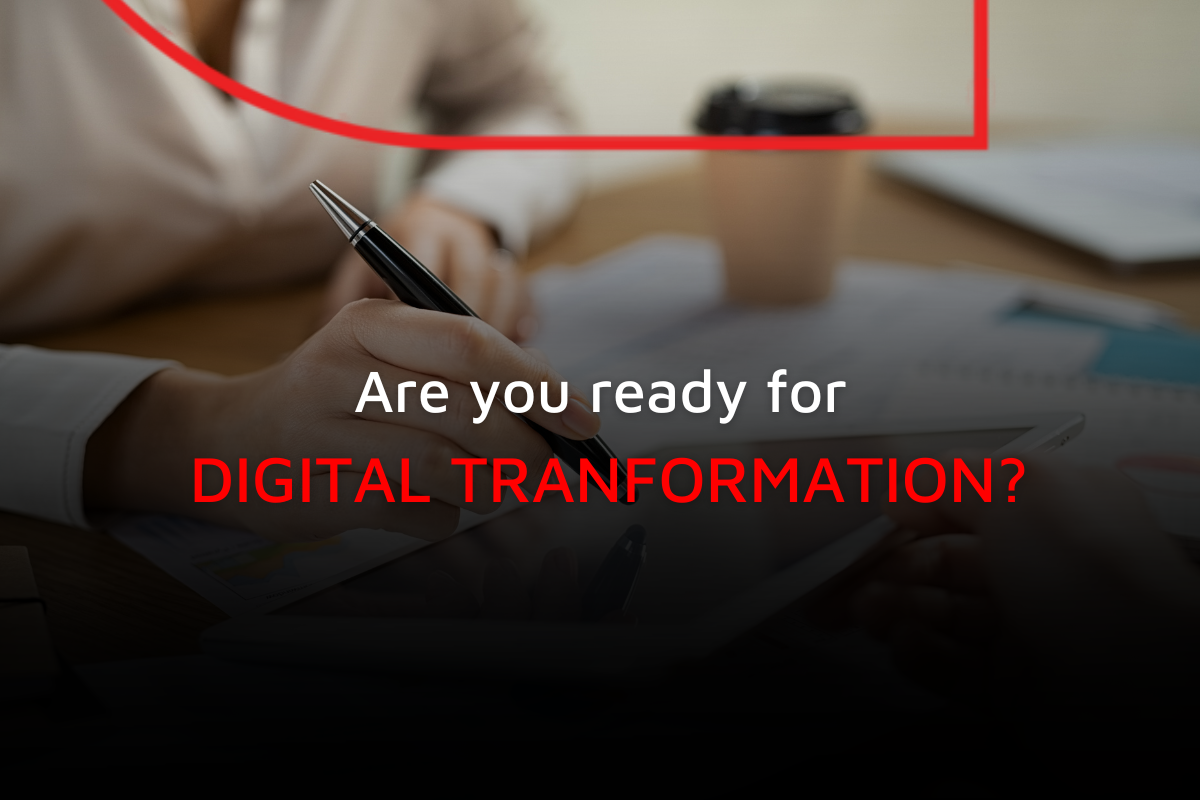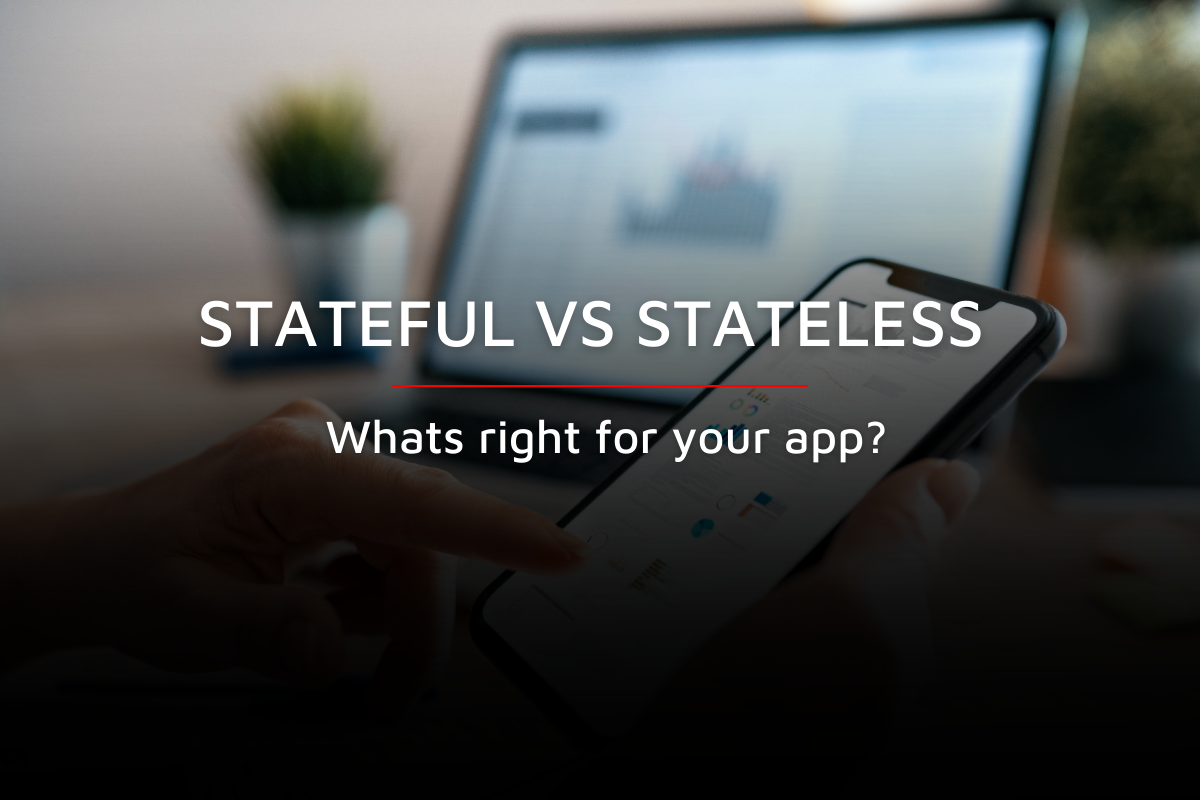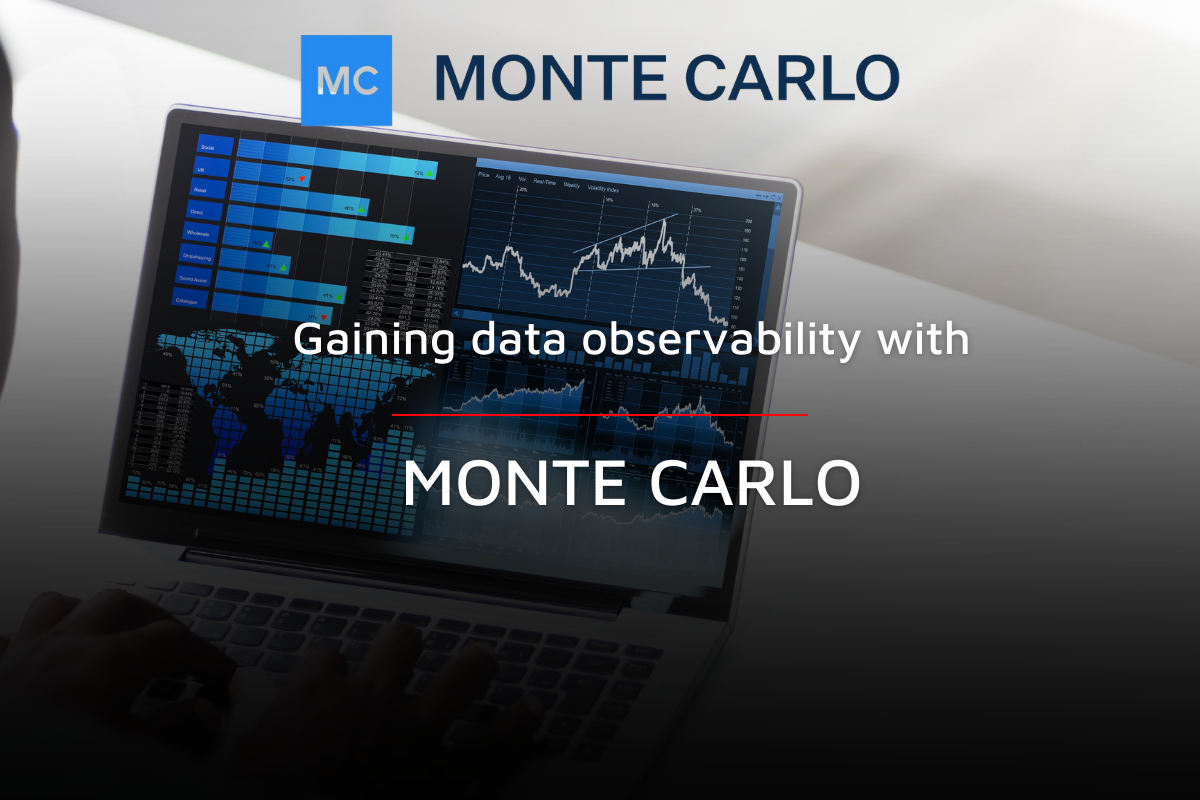Business Intelligence Platforms – how to choose the one right for you
1 February 2023 | Noor Khan

What are Business Intelligence (BI) Platforms?
Business Intelligence is the process of understanding an organisation's data to better understand the business performance, current activity and results, customers and more. This helps businesses make decisions based on their data in confidence. The entire process involves collecting data from multiple sources, which can range from databases that hold app data to CRM solutions which hold customer data. This data is processed and fed into data storage from which the data can be analysed, visualised and interpreted to drive Business Intelligence for businesses.
There are a wide range of BI platforms on offer by leading cloud BI service providers such as AWS, Azure, and Google Cloud. Here, we will look at the most popular ones right now with the majority of the market share as highlighted by Trust Radius.
Power BI
Power BI has gone from strength to strength since its launch in 2013, with it holding 35% of the BI platform market share in 2021. One of the greatest benefits Power BI offers businesses and users is the ecosystem of Microsoft technologies available to pull data from. Power BI is leveraged by some of the biggest brands in the world including Apple, Walmart and Costco. It has become a leading technology that organisations use for their BI as it offers invaluable benefits including:
- Decisions based on your data – With it being a BI platform, Power BI enables business leaders to make data-driven decisions quickly and efficiently.
- Visualization capabilities - Power BI offer multiple choice to display and organise data for reporting and analysis.
- End-to-end data solution – You can collect, process, store, analyse and visualise your data with Microsoft technologies without having to use other vendors.
- Active community – As it is the leading platform, there is a great community which can offer assistance and provider advice and support if required.
- Robust security – As part of the Microsoft technology ecosystem, Power BI has robust security measures in place to ensure your data is safe.
- Easy to use – It is considered easy to use with seamless drag-and-drop functionality to customise reports and an intuitive UI.
- Cost efficient – Compared to the like of Tableau it is considered a cost-effective solution.
Tableau
Tableau is the biggest rival for Power BI in the BI market share and has been established since 2004. Among its roster of world-renowned brands that Tableau has accumulated as customers are Lenovo, Lufthansa and Verizon. There are many benefits on offer when it comes to Business Intelligence and they include:
- Real-time analysis – With real-time analysis, business leaders can have the most up-to-date information and insights to remain agile and adapt to change.
- Unmatched visuals – When it comes to data visualisation, Tableau is unbeaten with stunning visualisation capability.
- Device customisability – It offers the ability to customise a report based on each device, so users will see the report modified to best suit each device.
- High performance – Tableau can seamlessly deal with large volumes of data without any performance issues such as slow speed.
- Quick reports – With drag-and-drop functionality, users can quickly and easily generate reports.
- Active community – Tableau has been around d for almost two decades and has built up a strong user base with an active community that can provide guidance.
Qlik Sense
Qlik Sense is a BI tool that can be used by professionals of all skills to gain game-changing insights. Founded in 2014, it is similar in age to Power BI. Some well-known brands that leverage Qlik Sense to drive BI within their organisation include Johnson and Jonson, Raytheon Technologies and Micron Technology. The biggest benefits that Qlik Sense offers to rival those of leaders such as Power BI and Tableau include:
- Access control – Qlik Sense offers granular level control where access to data can be restricted based on factors such as departments.
- Storytelling with powerful visualisations – Businesses can use powerful visualisation for storytelling.
- Device compatibility – It is compatible be multiple types of devices such as laptops, desktops, tablets and mobile phones.
- Simple to use – It is advertised as being simple to use by users with any skills, allowing professionals to gain insights without expert knowledge.
- Data search – Users can drill down on data with a global search to find exactly what they are looking for.
SAP Analytics Cloud
SAP Analytics Cloud is another leading runner in the BI world, with a focus on providing analytical capabilities to all types of users. Since it was released in 2015, it has been around for several years and has secured some highly valuable clients including the likes of Alphabet, Blackfriars Group and the University of California-Berkeley. Some of the most valuable benefits on offer include:
- Predictive analysis – Employing Machine Learning, SAP Analytics Cloud offers automated predictive analysis capabilities.
- End-to-end solution – Similar to Power BI, SAP offers end-to-end data solutions with the ability to combine, process and analyse data within the same ecosystem of technologies.
- Customisable dashboards – Users can customise dashboards to suit their unique needs and requirements.
- Mobile friendly – By integrating with S./4HANA, it can easily be deployed on Android and iOS devices enabling insights on the go.
IBM Cognos Analytics
IBM Cognos Analytics is an offering from one of the biggest technology companies around the globe (IBM). As a web-based BI application, it was released in 2006 to offer data analysis capabilities for businesses with big data sets. Some well-known organisations that use IBM Cognos to drive BI are The North Face, NetSuite and California State University. Some key stand-out benefits of IBM Cognos Analytics include:
- Data integrations – Cognos analytics offers integration from a variety of third-party technologies such as SQL Database, Google Big Query, AWS Redshift and more.
- AI assistant – A built-in AI assistant function enables one to spot trends and opportunities easily with natural language.
- Dynamic dashboards – Data is displayed on dynamic dashboards with drag-and-drop functionality making the platform easy to use and navigate.
- Mobile friendly – Compatible with mobile devices, it offers flexibility and the ability to gain real-time insights no matter the location.
The journey of data to BI
BI provides invaluable benefits to organisations of all sizes. However, for the data to be useful and provide meaningful insights it must go through the data lifecycle which includes multiple stages such as ETL which include data cleansing, de-duplication, validation and enrichment. This data will then be stored in a data infrastructure such as a data warehouse, which would then be integrated with a BI platform such as those listed in this article.
Driving BI with Ardent data engineering
If you are looking to unlock the potential of your data and uncover powerful insights to make data-driven decisions we can help. Whether you are looking to set up a BI platform or set up your entire data infrastructure, our expert data engineers have the experience to fulfil your requirements. You can explore some of the projects we have delivered for our clients.
- Automating data reporting to deliver insights quickly and easily for a global market research company
- Ensuring data availability with expert operational monitoring and support to make data science efficient
- Improving data turnaround by 80% with Databricks for a Fortune 500 company
Get in touch to find out more or explore our data engineering services.
Ardent Insights

Are you ready to take the lead in driving digital transformation?
Digital transformation is the process of modernizing and digitating business processes with technology that can offer a plethora of benefits including reducing long-term costs, improving productivity and streamlining processes. Despite the benefits, research by McKinsey & Company has found that around 70% of digital transformation projects fail, largely down to employee resistance. If you are [...]
Read More... from Business Intelligence Platforms – how to choose the one right for you

Stateful VS Stateless – What’s right for your application?
Protocols and guidelines are at the heart of data engineering and application development, and the data which is sent using network protocols is broadly divided into stateful vs stateless structures – these rules govern how the data has been formatted, how it sent, and how it is received by other devices (such as endpoints, routers, [...]
Read More... from Business Intelligence Platforms – how to choose the one right for you

Getting data observability done right – Is Monte Carlo the tool for you?
Data observability is all about the ability to understand, diagnose, and manage the health of your data across multiple tools and throughout the entire lifecycle of the data. Ensuring that you have the right operational monitoring and support to provide 24/7 peace of mind is critical to building and growing your company. [...]
Read More... from Business Intelligence Platforms – how to choose the one right for you






